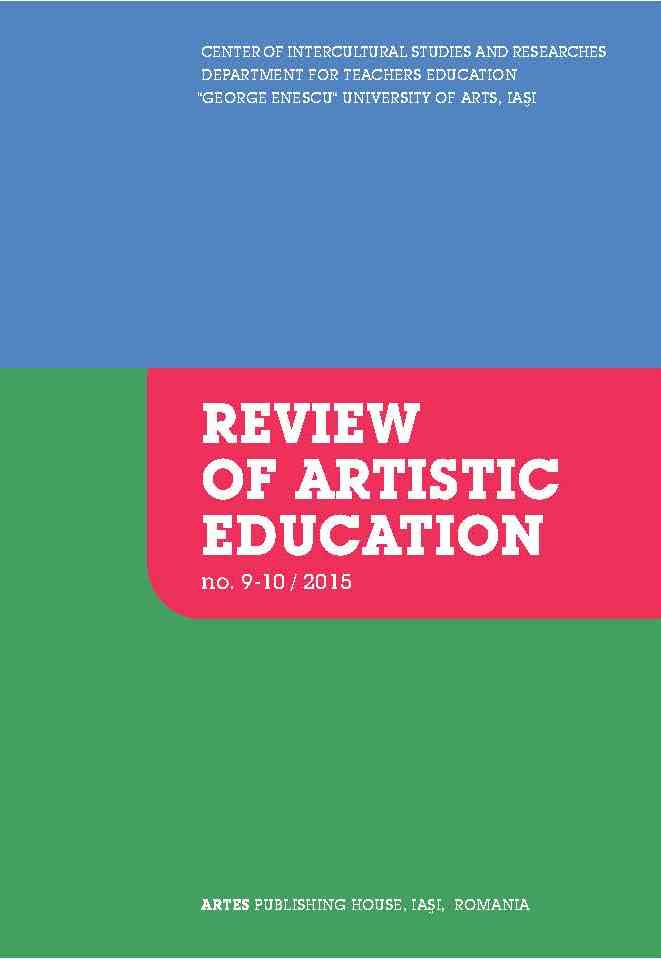CHARACTERISTICS AND PRINCIPLES OF ART EDUCATION
CHARACTERISTICS AND PRINCIPLES OF ART EDUCATION
Author(s): Theodora Chandrinou, Marinela RusuSubject(s): Fine Arts / Performing Arts
Published by: Editura ARTES
Keywords: art intervention; art education; curriculum; cognitive styles; art teachers
Summary/Abstract: Arts education is one of the most important educational purposes, in order to develop the whole personality of the child, modelling his character features and behavior. Teacher is the central factor in the teaching process, involving a good communication and eficient means of stimulating creativity. This will provide a lot of positive effects in children’s evolution as self-expression, self-knowledge, cathartic effects, better relationships and more interest in education, generally. Arts offer the possibility of personal growth and personal awarness. School is the place where the child can understand the metaphor and the languadge of painted images. We always admit that a portrait in drawing is merely a self-portrait. Our paper presents also, some practical issues, concerning the intervention through art in school, along with some works realized by children under teacher’s guidance. We analize the psychological consequences of this art intervention in primary school. Education in the arts is essential to students’ intellectual, social, physical, and emotional growth and well-being. Experiences in the arts - in dance, drama, music, and visual arts - play a valuable role in helping students to achieve their potential as learners and to participate fully in their community and in society as a whole. Arts provide a natural vehicle through which students can explore and express themselves and through which they can discover and interpret the world around them.
Journal: Review of Artistic Education
- Issue Year: 2015
- Issue No: 09+10
- Page Range: 191-200
- Page Count: 10
- Content File-PDF

